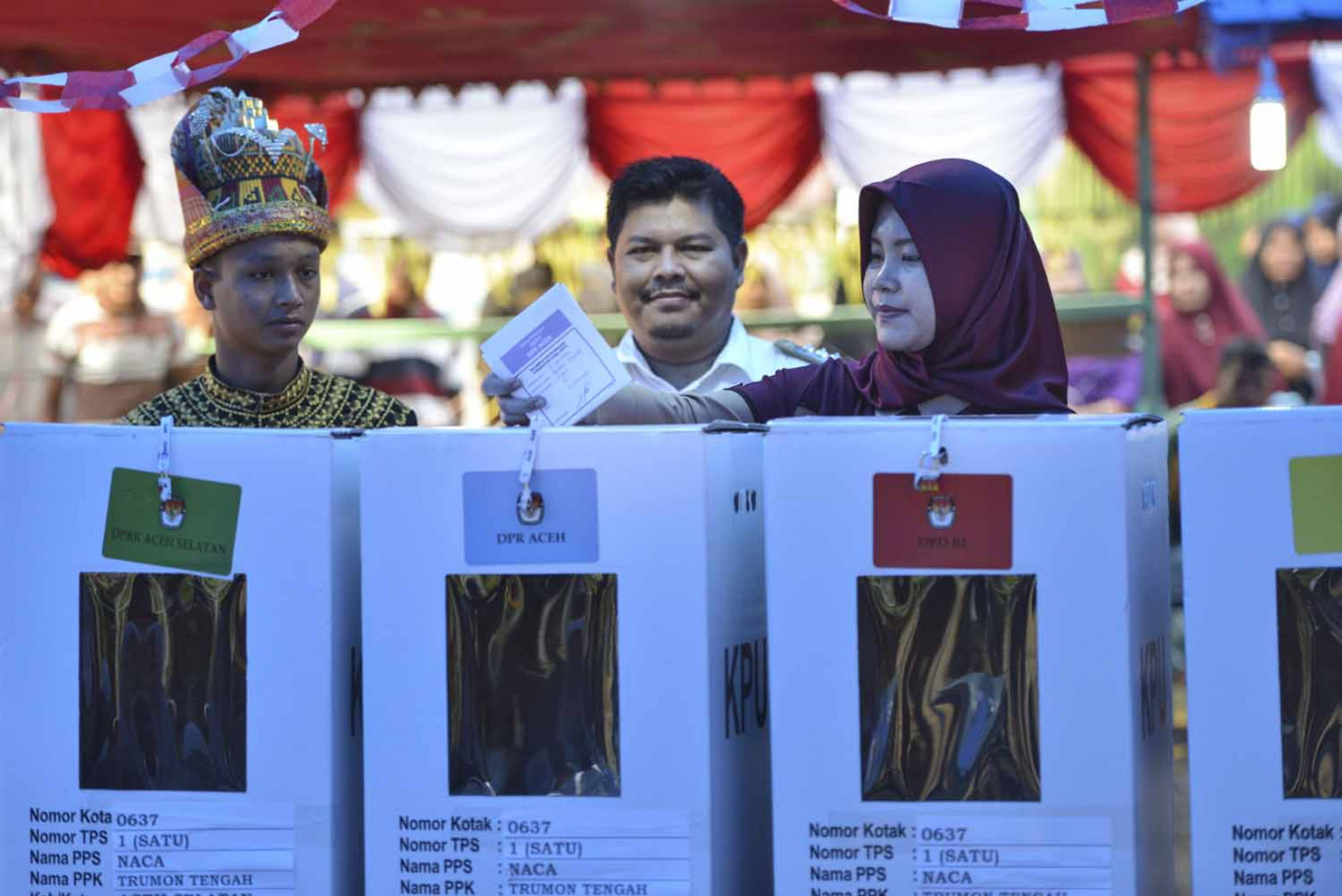Popular Reads
Top Results
Can't find what you're looking for?
View all search resultsPopular Reads
Top Results
Can't find what you're looking for?
View all search resultsMajority of Indonesian public favors direct presidential elections: Survey
An Indo Barometer study showed that 89.4 percent of its 1,200 respondents were in favor of a direct presidential election, whereas only 4.1 percent of the respondents expressed support for an indirect election, which would effectively grant The People’s Consultative Assembly (MPR) the sole authority to elect the country’s leaders.
Change text size
Gift Premium Articles
to Anyone
B
elief in democracy among the Indonesian public remains strong despite the political turbulence that dominated last year’s headlines, as reflected by a survey from pollster Indo Barometer.
The survey, which was conducted from Jan. 9 to 15, found that the overwhelming majority of respondents favored democratic political practices, which in theory grant the public rights such as direct elections, over practices that would revert electoral power to centralized bodies.
The report showed that 89.4 percent of the 1,200 respondents were in favor of a direct presidential election, whereas only 4.1 percent of the respondents supported an indirect election, which would effectively grant The People’s Consultative Assembly (MPR) the sole authority to elect country leaders. Meanwhile, 6.5 percent of survey respondents were ambivalent on the issue.
Of those in favor of direct elections in general, 42.5 percent said they were in favor of directly electing the president and vice president specifically because it meant they would retain the right to vote and be voted for.
In contrast, of those in favor of an indirect election, 32.7 percent said they preferred such an option for the presidency because it was more likely to prevent conflict among the public. Others – 30.6 percent of the respondents – said indirect elections would be cheaper than direct elections.
The report also showed that the overwhelming majority of respondents reached a similar consensus on the matter of regional elections, as 88.2 percent were in favor of direct regional elections. Only 5.9 percent favored regional elections through Regional Legislative Councils (DPRD), while the remaining 5.9 percent remained ambivalent on the issue.
Of those who favored direct regional elections, 41.2 percent agreed they preferred to directly elect regional heads – governors, regents, and mayors – because it meant they would retain the right to vote and be voted for.
The survey results seem to have clearly illustrated where the public stands on the issue of direct elections as the government floats the idea of so-called “asymmetrical elections”.
Home Minister Tito Karnavian created controversy late last year when he suggested that the government should only hold direct elections in democratically “mature” provinces. Regions that were deemed prone to political instability, such as Papua, would instead host indirect elections, he said.
Read also: Arguments against direct elections spurious: CSIS
“With direct regional elections, besides the potential of conflict in some regions with shootouts happening between tribes, identity politics is also on the rise,” Tito said. “Maybe the evaluation will find [that we should hold] asymmetrical regional elections.”
The idea of abolishing direct elections has been periodically floated since their establishment in 2004, with the last major attempt in 2014 overturned by a regulation in lieu of law (Perppu) issued by then-president Susilo Bambang Yudhoyono.










